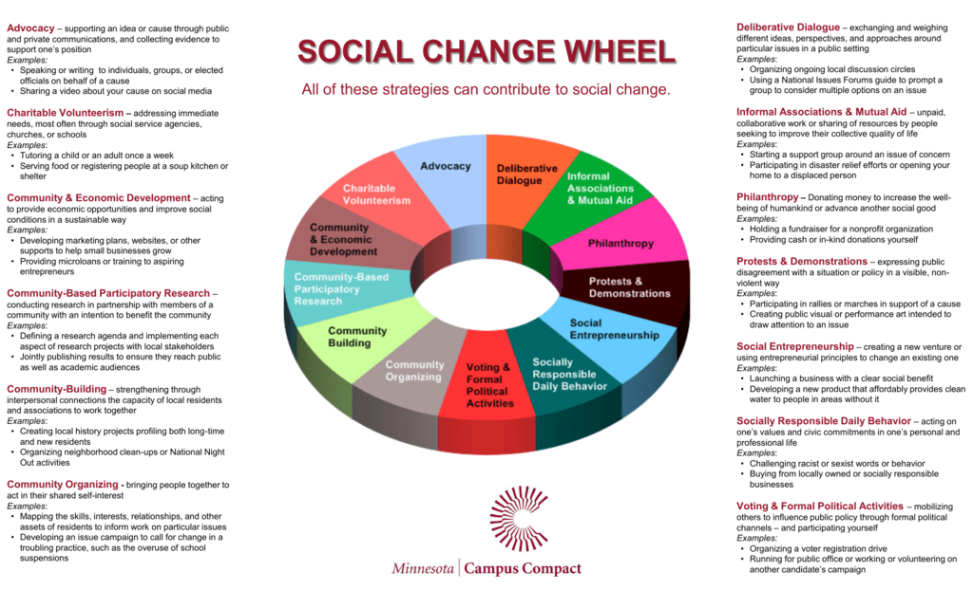Community engagement is valuable because it gives students direct examples of how their work can bring about positive change. It involves connecting with the public in order to improve some part of their community.
It is also a good way to understand how diverse society is. Much like a workplace setting, working within the community will show students how to co-operate with different processes, resources and values. This is a useful exercise in learning ways of communicating with others.
The community partners can be local, national or international and therefore integrate well with the other graduate attributes.
The social change wheel gives some examples of rich ways that community engagement can be passed on to our students.


